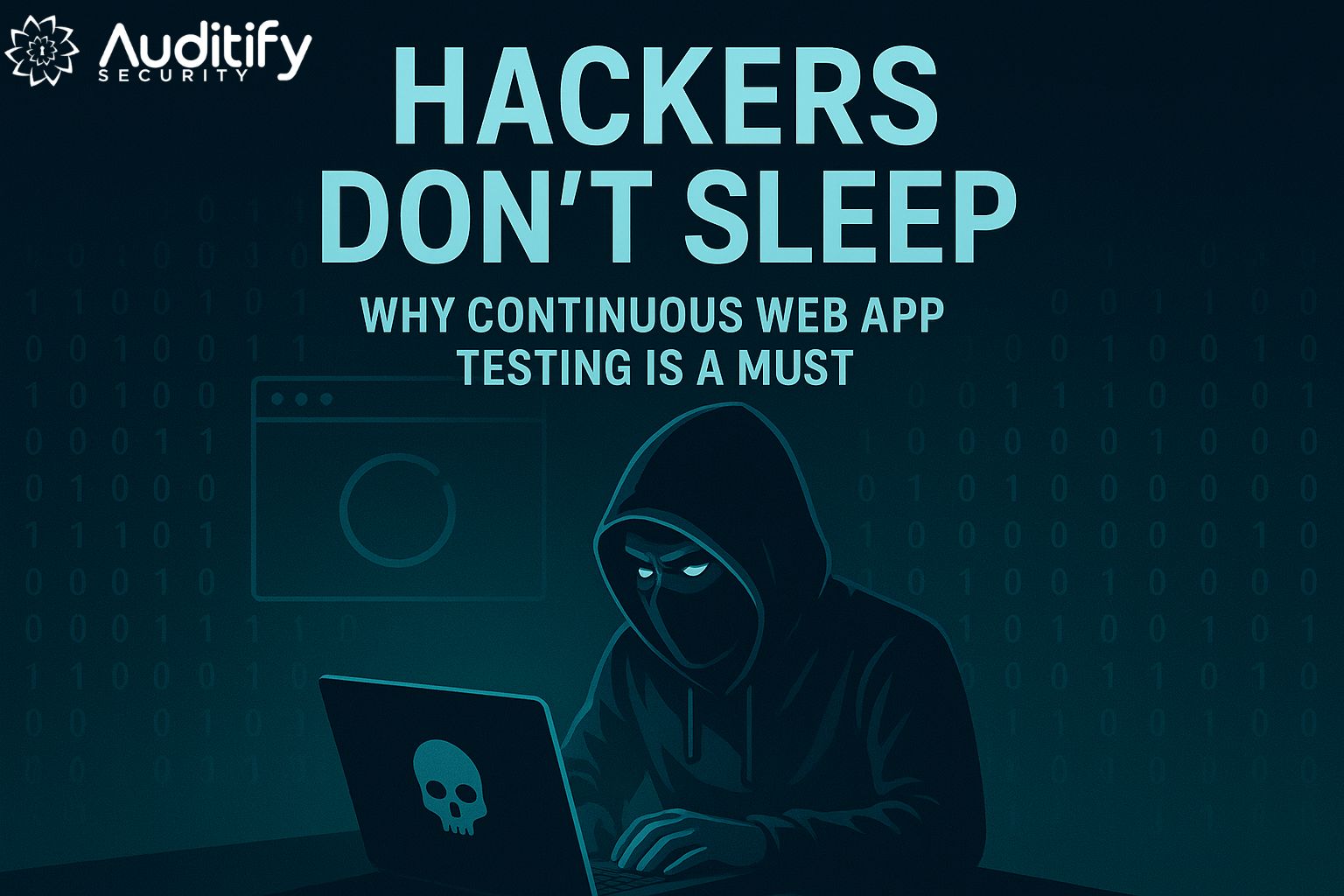At Auditify Security, we reveal why continuous web app testing is critical to safeguard against evolving cyber threats and protect your business
In today's fast-paced digital landscape, web applications are the backbone of most businesses. From online shopping to banking and healthcare, millions of users rely on web apps daily. But with this convenience comes a massive risk — cyberattacks. At Auditify Security, we believe that web application security testing isn’t a one-time event. It’s a continuous process, and here’s why.
The Evolving Threat Landscape
Cybercriminals don’t rest. They work around the clock, probing for vulnerabilities, automating attacks, and exploiting weak points as soon as they're discovered. The moment you stop testing your web application, you’re giving hackers a window of opportunity to attack.
According to recent cybersecurity reports, over 40% of web applications have at least one serious vulnerability at any given time. Whether it's a misconfigured server, an outdated plugin, or a logic flaw in your code, attackers are always on the hunt.
What’s at Stake?
If your web application is compromised, the consequences can be devastating:
Data breaches exposing customer information
Financial loss from stolen payment data or ransomware
Reputational damage that erodes customer trust
Legal consequences for failing to comply with regulations like GDPR or HIPAA
In short, one missed vulnerability can lead to a full-blown crisis.
What Is Web Application Security Testing?
Web application security testing is the process of identifying, analyzing, and fixing vulnerabilities in a web application. This includes:
Business logic testing
Authentication and session management testing
While many businesses conduct these tests occasionally—often during development or right before launch—continuous testing is the only way to stay secure in a constantly evolving threat environment.
Why Continuous Web App Testing Matters
1. Rapid Development Cycles Need Ongoing Testing
Modern development methodologies like Agile and DevOps push code updates frequently—sometimes daily. Every new deployment could introduce a new vulnerability. Without ongoing web application security testing, you’re flying blind with every release.
Auditify Security integrates security testing directly into your CI/CD pipeline, ensuring every update is secure before it reaches production.
2. Hackers Use Automation — So Should You
Cybercriminals use bots and automated tools to scan thousands of websites for known vulnerabilities. Your defense must match their speed. Automated security scanning, paired with expert analysis, allows you to detect and fix issues before they’re exploited.
3. Regulatory Compliance Requires Continuous Monitoring
If your business operates in regulated industries—finance, healthcare, e-commerce—you’re likely subject to strict compliance requirements. PCI-DSS, HIPAA, and GDPR all mandate regular security assessments.
With continuous web application security testing, you’ll always be audit-ready and reduce the risk of compliance violations.
4. Zero-Day Threats Are Always Lurking
Zero-day vulnerabilities—unknown flaws exploited before a patch is available—are a growing threat. Continuous testing helps you detect unusual behavior, flag potential anomalies, and respond faster, reducing your exposure window.
What Continuous Testing Looks Like with Auditify Security
At Auditify Security, we offer a modern, scalable approach to continuous web application security testing:
24/7 Vulnerability Scanning with real-time alerts
Manual Penetration Testing by certified ethical hackers
DevSecOps Integration to embed security in your development lifecycle
Custom Security Reports with actionable remediation steps
Compliance Readiness Support for PCI, HIPAA, and more
We don't just find vulnerabilities—we help you fix them and strengthen your application against future threats.
Real-World Example: One Missed Patch, Major Breach
In 2024, a well-known e-commerce platform suffered a breach affecting over 10 million customers. The root cause? A forgotten third-party plugin that hadn’t been updated in months. A simple security scan would have flagged the vulnerability. But without continuous testing, it went unnoticed until it was too late.
The Bottom Line: Don’t Let Hackers Get Ahead
Cyberattacks don’t happen on a schedule, and neither should your security efforts. Hackers don’t sleep, and neither should your defenses. By embracing continuous web application security testing, you’re not just protecting your app—you’re protecting your users, your reputation, and your bottom line.





